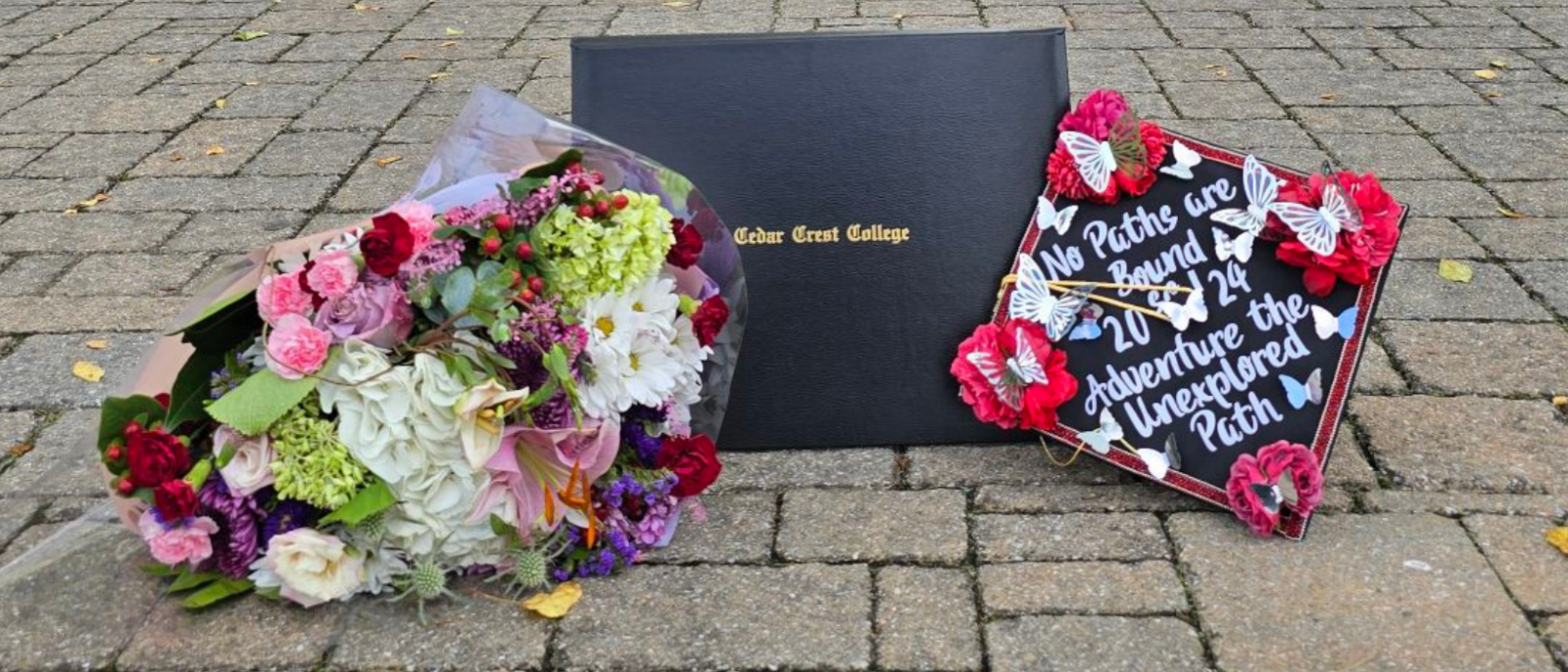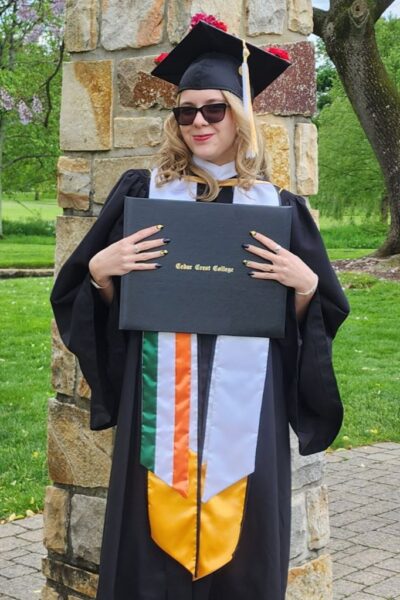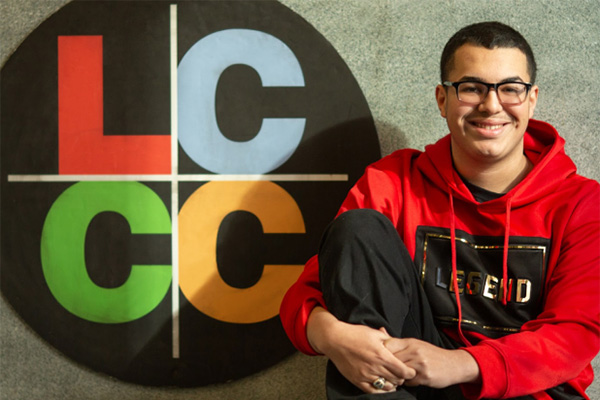Accelerating to a Master’s Degree

“What interested me in the Early College program was that it was—well, early college,” says 2022 LCCC graduate, Leah Moll. She got a jump start on her post-secondary education by enrolling in the Early College program, which is designed for 11th and 12th grade students to enroll full-time at LCCC for two years, thereby earning their A.A. in General Studies while simultaneously earning their high school diploma. “My counselor recommended the program to me,” she says. “It gave me such a head start in my career and in life.”
As a first-generation college student, Moll searched for opportunities to earn her bachelor’s degree sooner than the traditional route would allow. When she learned of the Early College program, she felt she had to take the opportunity. “It was a lot of work,” she says, “but my family has been with me through everything and has been really supportive.” While the journey of being a first-generation college student has brought unique challenges, she’s proud of her ability to navigate it by utilizing her strong support system.
LCCC paved the way for Moll to find her path to her career, as the flexibility of the program allowed her to explore a variety of courses and areas of study. Her favorite courses at LCCC were the psychology courses she took, as well as Criminal Investigations. When she transferred to Cedar Crest College after graduating, she further nurtured her interests by double majoring in psychology and criminal justice.
Moll’s professors at Cedar Crest helped her discover more about each field of study. “Dr. Sharon Himmanen and Dr. Micah Sadigh were especially great,” she says. “[No matter the] question I had, they answered it.” One of her favorite courses was Introduction to Profiling, where she says her instructor made the material understandable in an otherwise complex class.
 Though she would eventually solidify her academic interests at Cedar Crest, Moll attributes her success to her time starting at LCCC. “[Before transferring], I knew what a syllabus was, I had better time management skills, I knew how to appropriately cite sources,” she says. “My psychology professors were impressed that I knew APA style already.” In addition to being academically more prepared, being a part of the Early College cohort and being involved in LCCC’s Anime Club helped her build meaningful connections with her peers. “Before, I was not outgoing or talkative, but I am now.”
Though she would eventually solidify her academic interests at Cedar Crest, Moll attributes her success to her time starting at LCCC. “[Before transferring], I knew what a syllabus was, I had better time management skills, I knew how to appropriately cite sources,” she says. “My psychology professors were impressed that I knew APA style already.” In addition to being academically more prepared, being a part of the Early College cohort and being involved in LCCC’s Anime Club helped her build meaningful connections with her peers. “Before, I was not outgoing or talkative, but I am now.”
The skills and knowledge Moll carried with her to Cedar Crest helped ease the transfer process, as did the fact that all of her credits transferred. In addition, she received the Presidential Scholarship and the First Gen Star Scholarship to attend Cedar Crest, which created a clear path to completing her bachelor’s degree.
Moll plans to continue her education at Cedar Crest in the M.S. in Crime Science program. “I’m mostly excited about the courses,” she says. “The program goes deeper into the psychology aspect of things and how to transition into a career.” Her master’s degree will provide the best path to becoming a forensic profiler, a profession that she says is worth the hard work and difficult mental strain it can cause. “One of the first classes I’ll take in my master’s program is how to manage my own mental health in the workforce.”
In her trajectory to becoming a forensic profiler, Moll stresses the importance of mental health. “It’s especially important in criminal investigations,” she says. “A lot of people focus on the physicality of a crime, when mental health is just as important, if not greater.” Forensic profilers help to determine criminal personalities and motives.
Moll recommends that any high school student considering applying for the Early College program should do so. “It makes you a better person,” she says. “You learn so much more academically, and the connections you build are timeless.”
For more information on the Early College program, visit the LCCC website.

